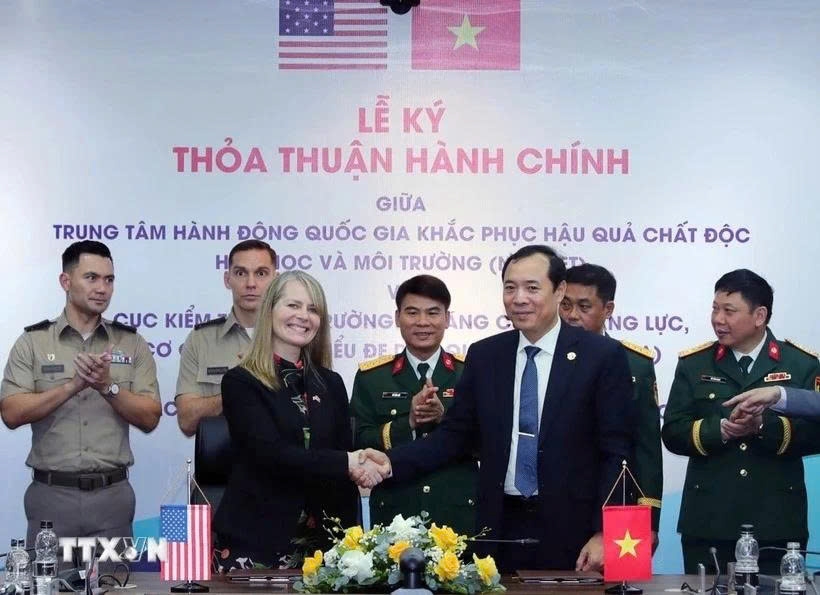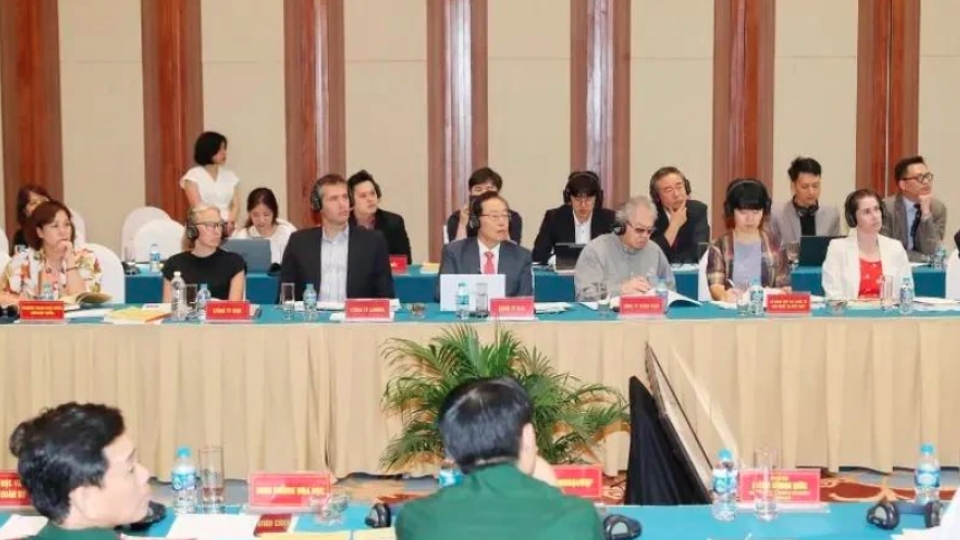Vietnam, US sign pact to bolster response to chemical, biological, nuclear threats
Vietnam’s National Action Centre for Toxic Chemicals and Environmental Treatment and the US Defence Threat Reduction Agency’s On-Site Inspection and Building Capacity Directorate have signed an administrative agreement to boost Vietnam’s capacity to respond to chemical, biological, radiological, and nuclear incidents.

The signing marked a stride in the Vietnam – US Comprehensive Strategic Partnership as they celebrate the 30th anniversary of diplomatic ties, aiming to strengthen Vietnam’s preparedness for non-traditional security threats, mitigate damage, and build resilience against potential disasters.
Col. Nguyen Dinh Hien, commander of the Chemical Arms and general director of National Action Centre for Toxic Chemicals and Environmental Treatment (NACCET), said as globalisation accelerates and non-traditional security threats, particularly those involving chemical, biological, radiological, and nuclear (CBRN) risks, continue to rise, enhancing response capabilities has become an urgent priority.
NACCET, established by the Prime Minister, serves as the country’s lead agency for coordinating responses to CBRN incidents and remediating the environmental impact of chemical agents used during wartime. The agency also spearheads international cooperation and nationwide training to bolster Vietnam’s environmental incident response capabilities.
US Defence Threat Reduction Agency (DTRA), with a global network of offices, focuses on reducing and countering risks posed by weapons of mass destruction as well as CBRN risks and incidents.
Laura J. Gross, director of DTRA’s On-Site Inspection and Building Partner Capacity Directorate, expressed optimism about long-term collaboration, noting that proactive measures to strengthen response capabilities are critical for national security, public safety, and regional peace and stability given the unpredictable nature of CBRN threats.



